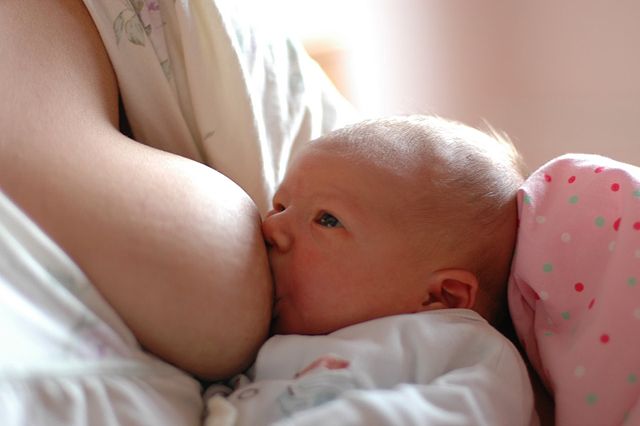Fewer babies across the country are being fully breastfed throughout the first months of their lives, according to data released by the children’s database Børnedatabasen covering the period 2012-2014.
Even though the health department Sundhedsstyrelsen recommends it is best for both the child and mother that babies be breastfed for the first six months of their lives, new figures show that the proportion of children being breastfed until they are two weeks old fell from 89.3 percent in 2012 to 86.7 percent last year.
READ MORE: Baring their boobs – all for a good cause
For children at 17 weeks, the proportion being breastfed fell from 55.8 percent to 52.7 percent.
“The differences are not large, but over the three years it seems there is a slight downward trend,” Kim Fleischer Michaelsen, a professor of child nutrition at the University of Copenhagen, told DR Nyheder.
Figures from Børnedatabasen show that only 9.8 percent of Danish children are exclusively breastfed until they are six months old.
Reasons not clear
Michaelsen said it is important to remember that many mothers do breastfeed, just not exclusively, and that mothers in Denmark and the Scandinavian countries in general breastfeed longer than mothers in other countries.
The cause of the slight downward trend is unclear, but Michaelsen speculated that recent reports about pollutants found in breast milk may have spooked some mothers.
“It may have scared some women,” he said. “But there is no evidence that environmental toxins have negative effects on children.”
Capital a little better
Michaelsen said the benefits of breastfeeding, including better overall health, outweigh any potential negatives.
Women in the mid-Jutland region and southern Jutland region are breastfeeding less, while there has been a small increase in the Capital Region.
Not enough help
Susanne Hede from nurses group Fagligt Selskab for Sundhedsplejersker said that mothers are not getting enough help to continue with breastfeeding.
“There is a lower level of service than before the financial crisis,” said Hede.
“Mothers come home earlier from the hospital and do not get as much help at the beginning as before. If they can get help when they need it, many will want to breastfeed.”
Hede stressed that mothers who do not breastfeed should not feel guilty.
“Women who bottle-feed are equally-good mothers,” she said.















